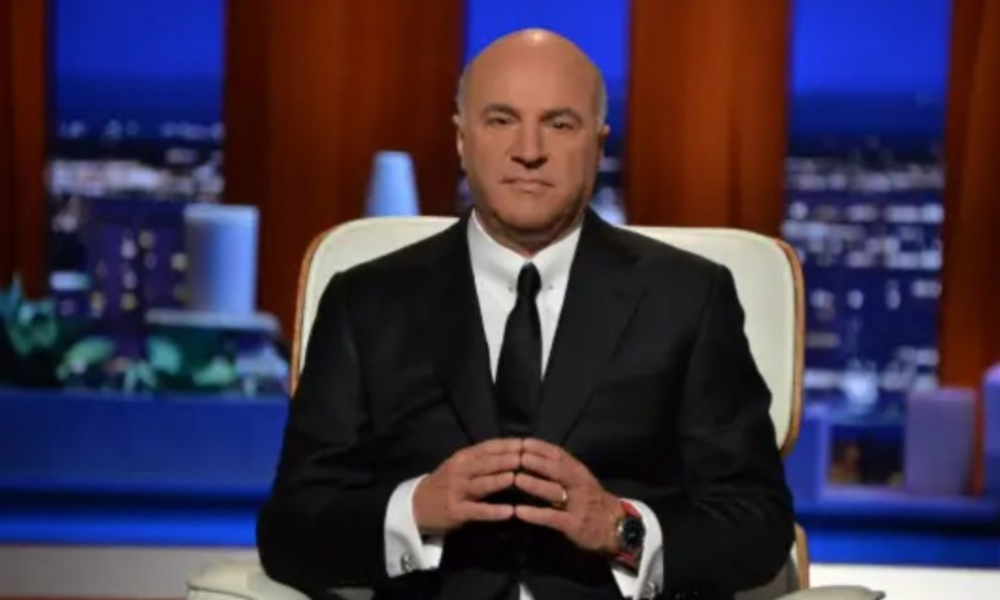TV personality says employees not keen to 'work in cubicle in high rise with crappy air'

The old way of thinking just isn’t going to work.
That’s according to Kevin O’Leary, Canadian businessman and TV personality, in talking about the push by many employers to get people back to the office.
Speaking on the program “Squawk Box” on CNBC, O’Leary said he’s heard from HR professionals about the issue and the challenges of recruitment.
“Remember, if you are 60 or you're 50 or you're 40, you've experienced that working together, the collaboration you guys are all pining about — those years are over, it's over. There's technology now that lets you work together with people and collaborate — we’ve been doing it for two-and-a-half years,” he said.
“But if you're 24 and you're the hot hand over the keyboard, and you're coming out of MIT and you're an engineer, there is no way in hell you're working in a cubicle in a high rise with crappy, poisonous air and getting on the subway. You don’t have to do that anymore.”
O’Leary listed the top 10 “pushback” issues HR professionals are having to deal with when trying to convince a recruit that they will have to work in an office:
1. Do not want to increase their carbon footprint by having to commute.
2. Do not want to work in high rises where the air is "poison.”
3. Have already proven that they can be productive remotely.
4. Rather raise a family in affordable communities hundreds of miles away from HQ.
5. Many team members already working in other countries.
6. Not interested is paying for office wardrobe.
7. Large cities like New York, Chicago, San Francisco are "war zones" and unsafe.
8. Won't ride on subways, trains or buses where they will get the latest variant of COVID.
9. Not interested in paying the cost of commuting or wasting the time.
10. Meals too expensive at HQ, rather prepare better cheaper food at home office.
While the debate rages on, everyone should get over it, said O’Leary on LinkedIn: “The train has already left the station.”
Recently, bestselling author Malcolm Gladwell criticized the work-from-home setup.
Mixed response to O’Leary’s stance
Response to his post was mixed.
“The workforce will re-sort itself in the next decade and workers will align to employers that fit their needs and vice-versa,” said Joe Nunes, executive chairman of Actuarial Solutions on LinkedIn.
“Don't forget the big city vs small town divide. If your commute in town is 15 minutes, then going into the office is often preferred; if your commute is an hour-plus, then you can see the financial and mental benefit of WFH. Employers in big cities will have to rethink their value proposition and it may include higher pay.”
However, Chris Martinkat, CEO and president and CEO at Stockmeier Urethanes USA, called improved teamwork and productivity with remote work a “fairytale”:
“Plus, the economy consists of more than desk workers, so how will that reflect on employees working in a lab or production and don’t have that choice? The more interesting question came up this morning from Steve Liesman at CNBC: When do we get to the point when remote workers accept a pay cut in exchange for the privilege of staying at home permanently? That would get it real. This train may have left the station, but there is more than one ride available. Offices exist for a reason and when combined with the necessary degree of flexibility, will remain the center of gravity in any successful organization.”
Read more: Almost one in four admit to slacking off while working at home, according to a survey of more than 2,500 adults in America, Canada and Australia.
The real future is hybrid, said Matt Vaadi, CEO at guHRoo, on LinkedIn.
“The thing to remember is that not everyone wants to work remote and not everyone wants to be in office… By saying one is greater than the other, we are leaving a large percentage of our team behind either way. It’s like situational leadership — meet people where they are.”




